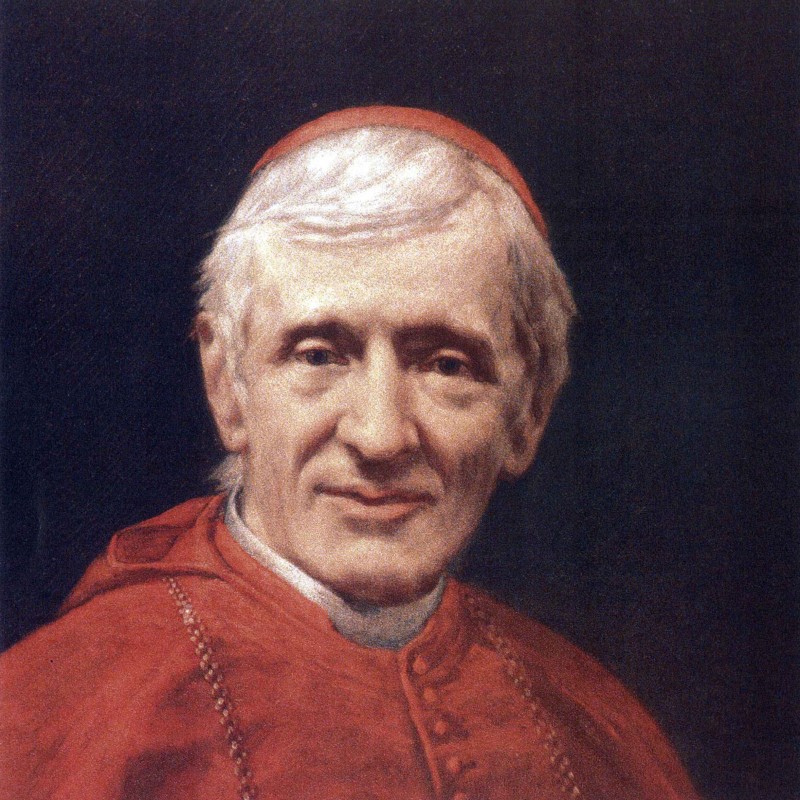Last week, I wrote about the huge gap between the way most Christians celebrate the Advent season and the way the Gospels of Advent remind us to. I reflect on one of the Advent sermons of the great 19th Century English convert, St. John Henry Cardinal Newman. (You can read that sermon, Vol. IV, #22, at https://www.newmanreader.org/works/parochial/volume4/sermon22.html )
The first part of that discussed what it meant to “watch” for Christ: to update Newman’s examples just a little: Much the same way that a mother or father can’t help thinking of their child deployed overseas in a dangerous military zone; the way that we are very disappointed with a good friend when we expect him to come and he doesn’t show up; much the same way we long to be with family or friends that we love when we are stuck in an unpleasant and interminably long meeting at work instead – that gives us just a little taste of how much we should long for Christ to come again: our whole mind and being should be fixed on it. This doesn’t come naturally for us. Rather, we have to do spiritual work to train ourselves to desire it. That’s what our prayer life is about. We have to train ourselves to take the sacraments seriously, especially Mass and confession – so that we can become spiritually attuned to that longing for His coming again.
But the flipside of this is that we have to remove the obstacles from our lives and patterns of thinking so that our hearts can truly “watch” for Christ’s coming – rather than giving in to the common temptation of trying to “play both sides of the fence” – being “sort of religious” – but at the same time, remaining focused on the good things of the world, rather than the astonishing poverty of Christ the Word made flesh so that He could give His life on the Cross as a Man and bring us into the light of the Heavenly Kingdom. Newman’s preaching makes it quite clear that no serious Christian can expect to get to Heaven if he holds on primarily to the joys of this world.
He uses a wonderful analogy of rust on metal: our soul should reflect the dignity and light of Christ, but it becomes “rusty” by contamination with seeking to live only for the joys of this world, as if they were what is eternal. The reality is the opposite: they are dull reflections of the goodness of Christ. Just as rust starts only on the surface, but eventually eats into the very core of the metal which it attacks, so this same “spirit of the world” acts on our souls. At first, we think we can balance living for Christ and the world, but soon the worldliness takes over and becomes the core of our being. When that happens, we are in grave danger.
Let’s look at some excerpts of the saintly – and prophetic – Cardinal, discussing those Christians who do not “watch” (all emphasis mine).
This then is [what it means] to watch; to be detached from what is present, and to live in what is unseen; to live in the thought of Christ as He came once, and as He will come again; to desire His second coming, from our affectionate and grateful remembrance of His first. And this it is, in which we shall find that men in general are [lacking]. They are indeed without faith and love also; What is meant by watching, and how it is a duty, they have no definite idea; …
They have a number of good qualities, and are in a certain sense… religious; but they do not watch. Their notion of religion is … loving God … but loving this world too; …. They serve God, and they seek Him; but they look on the present world as if it were the eternal, not a mere temporary, scene of their duties and privileges, and never contemplate the prospect of being separated from it. It is not that they forget God… or forget that the goods of this world are His gift; but they love them for their own sake more than for the sake of the Giver…
I would say that they [lack] the tender and sensitive heart which hangs on the thought of Christ, and lives in His love. The breath of the world has a peculiar power in what may be called rusting the soul. The mirror within them, instead of reflecting back the Son of God their Savior, has become dim and discolored; and hence, though … they have a good deal of good in them, it is only in them, it is not through them, around them, and upon them. An evil crust is on them: they think with the world; they are full of the world’s notions and modes of speaking; they appeal to the world, and have a sort of reverence for what the world will say. There is a [lack] of naturalness, simplicity, and childlike teachableness in them. It is difficult to touch them, or … get at them….
And as a rust preys upon metal and eats into it, so does this worldly spirit penetrate more and more deeply into the soul which once [allows] it [to enter in]. … We are not altogether irreligious, and we persuade ourselves that we are religious. We learn to think it is possible to be too religious;… we have been cheating ourselves with words, and have not served Christ, as the Redeemer of the soul claims, but with a meagre, partial, worldly service, and without really contemplating Him who is above and apart from this world.
Powerful words these! Let us work on contemplating Christ’s coming this Advent season.
